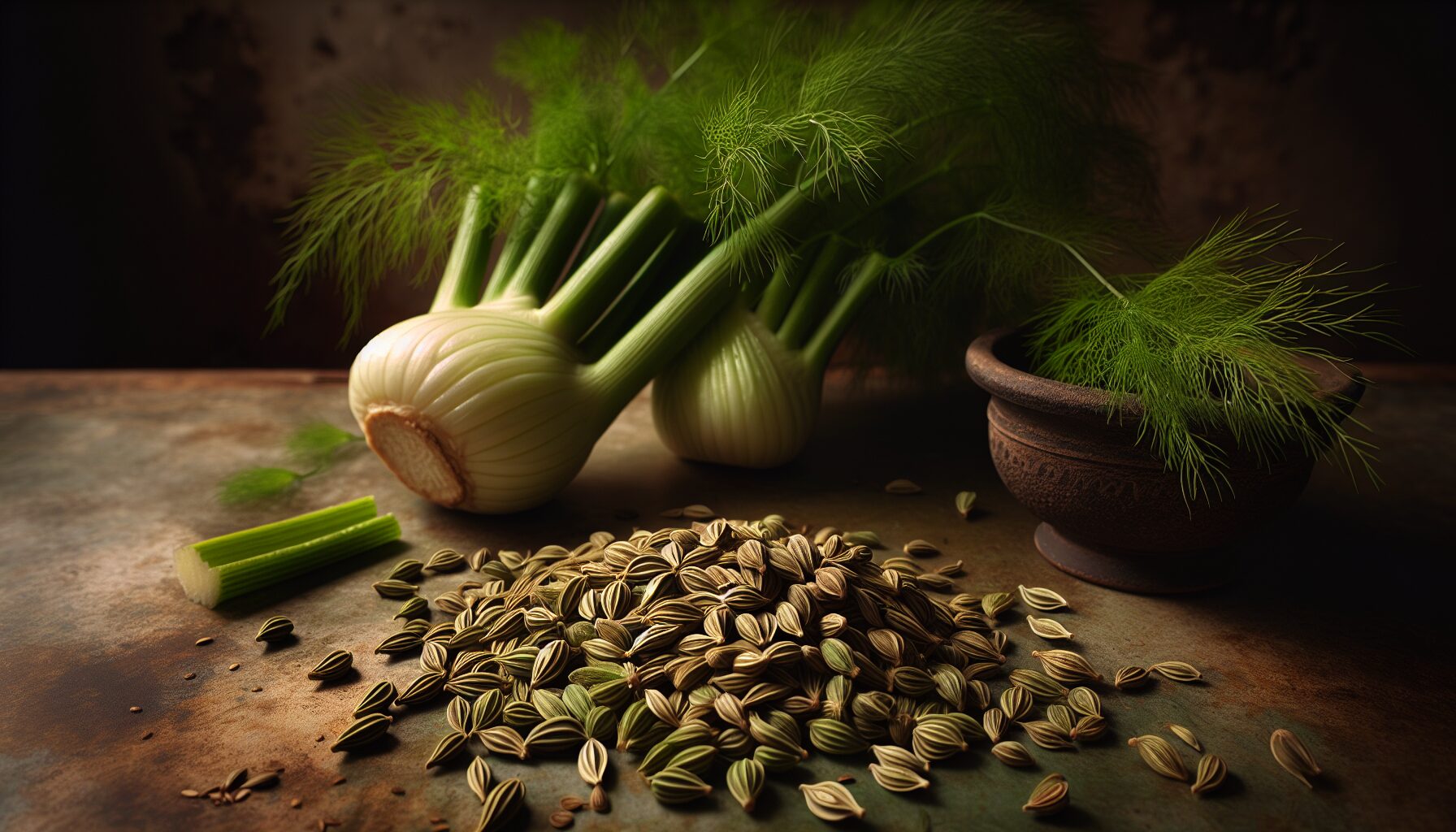
Fennel Health Benefits
Fennel is a popular herb often used in cooking to provide a little bit of depth to ones food, while it also has many health benefits and effects within the body that many people are not aware of.
The fennel herb is a bushy, aromatic and perennial herb originally native to the mediterranean. Fennel is really easy to grow in your garden and is quite hardy. Nutritionally, fennel doesn’t offer nutrients like fruits or vegetables might, but it does offer unique phytochemicals and minerals. Especially in its seeds.
Our ancestors noticed that this plant had some medicinal properties and this is how fennel became so wide spread. It is one of the world’s oldest spice plants. Fennel is considered to have antioxidant, anti-allergy and anti-microorganismal activity, being preventative against viruses, fungi or bacteria.
It has also been used to relieve anxiety, depression and may be useful for healthy weight management. Fennel seeds have also been used to treat eye disorders. Their specific plant compounds are also thought to provide the mouth with a freshening effect. The most nutritionally active part of fennel is the seed, which is also the part most used in cooking.
In this article we will look at the key health benefits of fennel and how it can assist with encouraging more optimal wellness in your life.
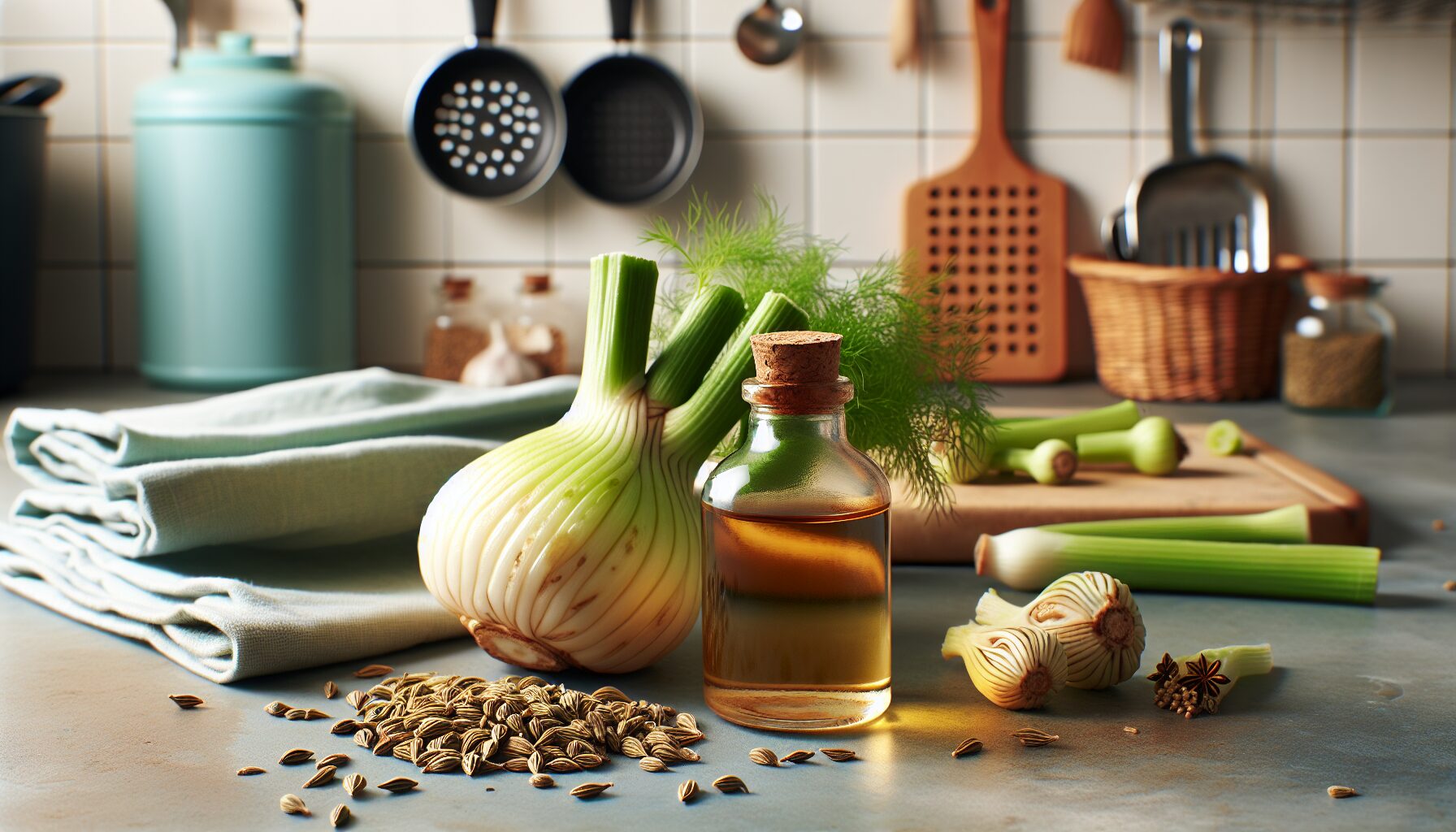
Nutritional Profile Of Fennel And Fennel Seeds
Fennel seeds are packed with specific nutrients, such as dietary fibres and minerals, while they contain bioactive fennel specific molecules with potential health benefits. Fennel bulbs and fonds are not as nutritious as fennel seeds. Loose fennel bulbs are only really rich in vitamin A, dietary fibre, vitamin K and potassium. They are very low in trace minerals.
Dietary Fibre
For dietary fibre, fennel seeds are one of the best foods you can add to your diet. Per 100 grams of fennel seeds, you can obtain around 40 grams of dietary fibre. In comparison, fennel bulbs only contain 3.1 grams of dietary fibre per 100 grams in comparison.
Dietary fibre is complex carbohydrates that our body can’t easily digest but our gut bacteria really love to consume. This is why they are a prebiotic. Dietary fibres are usually long chain sugars. They support an improved relationship between healthy or beneficial gut bacteria and ourselves.
A huge issue with western diets, rich in processed foods, are that they cause a lot of inflammatory issues within the body. Poor diets are low in vital nutrients and may lack prebiotic fibres. These nutrients are essential for the growth of beneficial microbes, while deficiencies can lead to gut dysbiosis and systemic inflammation. Gut dysbiosis is where there is an imbalance of beneficial to harmful gut microbes in the gut. These contribute to skin conditions such as eczema or acne, cause big increases in skin sebum production.
Research suggests that healthy foods like fennel could help people suffering from gut inflammation, especially through encouraging more beneficial gut bacteria to develop in the gut. Fennel seeds seem to be very powerful in this regard, also because of their specific bioactive plant compounds.
Beneficial gut bacteria can improve immune responses, lower inflammation in the gut and support brain health. Unhealthy gut microbes may also drive intestinal inflammatory responses through activating the immune system and inflammatory cytokines. This can trigger skin diseases or other inflammatory conditions, while this can also lead to leaky gut.
Consuming a small amount of fennel seeds may therefore really support our health through its gut health promoting benefits.
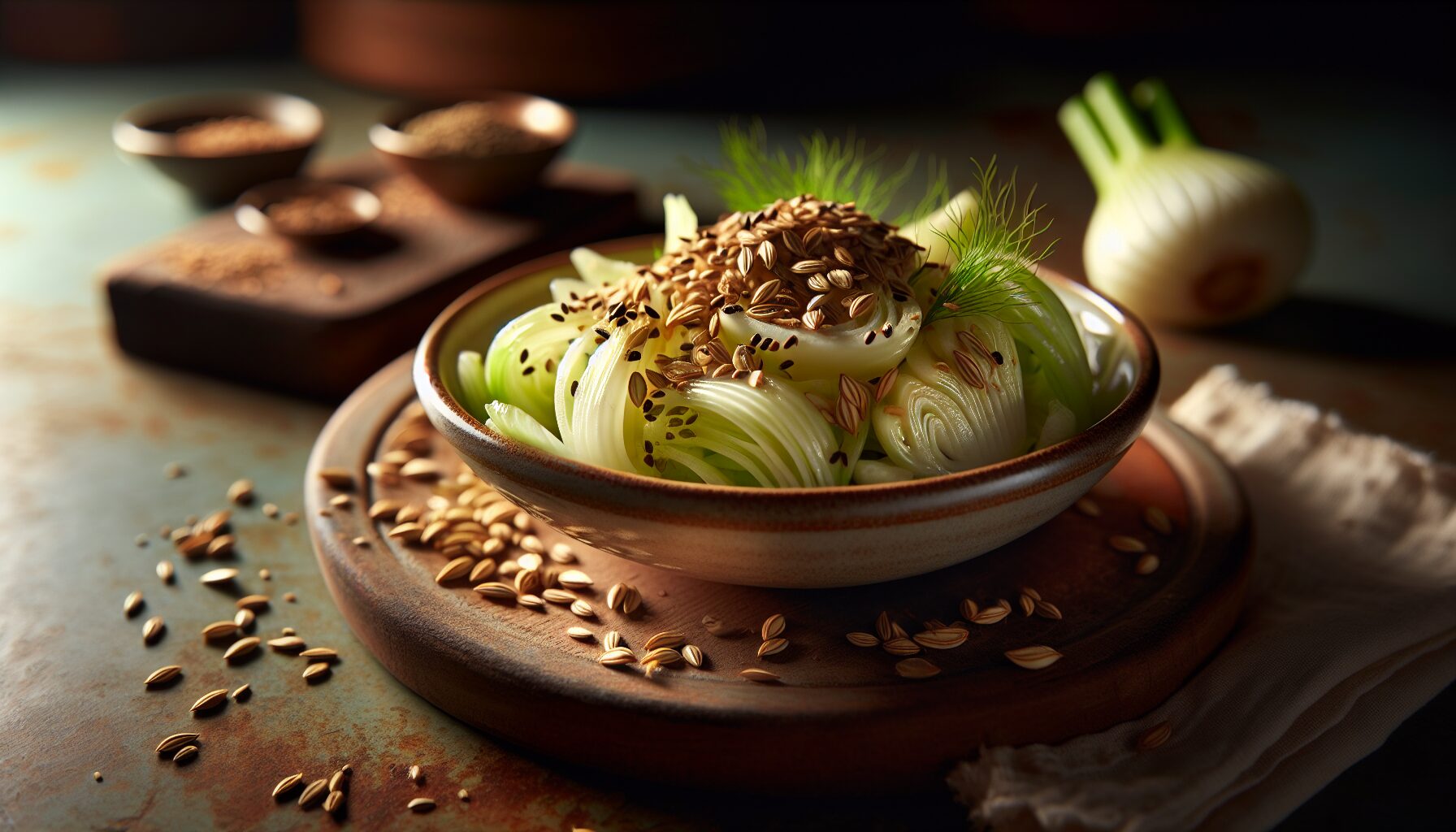
Mineral Content Of Fennel Seeds And Benefits
Fennel seeds are rich in many essential minerals that the body really needs on a day to day basis. For pure bioavailable minerals, fennel seeds are really nutrient dense. They are rich in important electrolytes such as calcium and also offers important growth supporting minerals such as phosphorus.
Calcium, Potassium And Magnesium
The fennel herb contains essential electrolytic minerals such as calcium, potassium and magnesium in high quantities. Fennel seeds contain 1200mg of calcium, 385mg of magnesium and 1690mg of potassium in 100 grams of fennel seeds. 100 grams is a sizable amount of fennel seeds. You would maybe want to eat just a handful of fennel seeds to support a healthy nutritional depth or content within your food. Alternatively, you could add a significant amount of fennel seeds to a healthy juice.
Our calcium RDA is 1000mg a day, so a handful of fennel seeds can support our calcium RDA. Calcium is essential as an electrolyte and supports bone formation. Higher bone density could contribute to improved gym results.
We need around 300mg or 400mg a day of magnesium. This essential mineral supports healthy energy, protein and DNA production in the body. Magnesium is an essential electrolyte, it is found in a balance with other electrolytes within the body. Magnesium is very important for optimal muscle relaxation and movement. This mineral also regulates nerve transmitter production, including serotonin.
Our RDA for potassium is between 2,500 and 3,500mg a day, so again a good serving of fennel seeds does support optimal levels of this essential electrolyte. In comparison, fennel bulb contains 414mg of potassium per 100 grams.
Potassium is needed across the body. Healthy levels of potassium are important and support healthy muscular movements and nerve transmissions. Improved potassium status reduces risks of strokes and is thought to lower blood pressure.
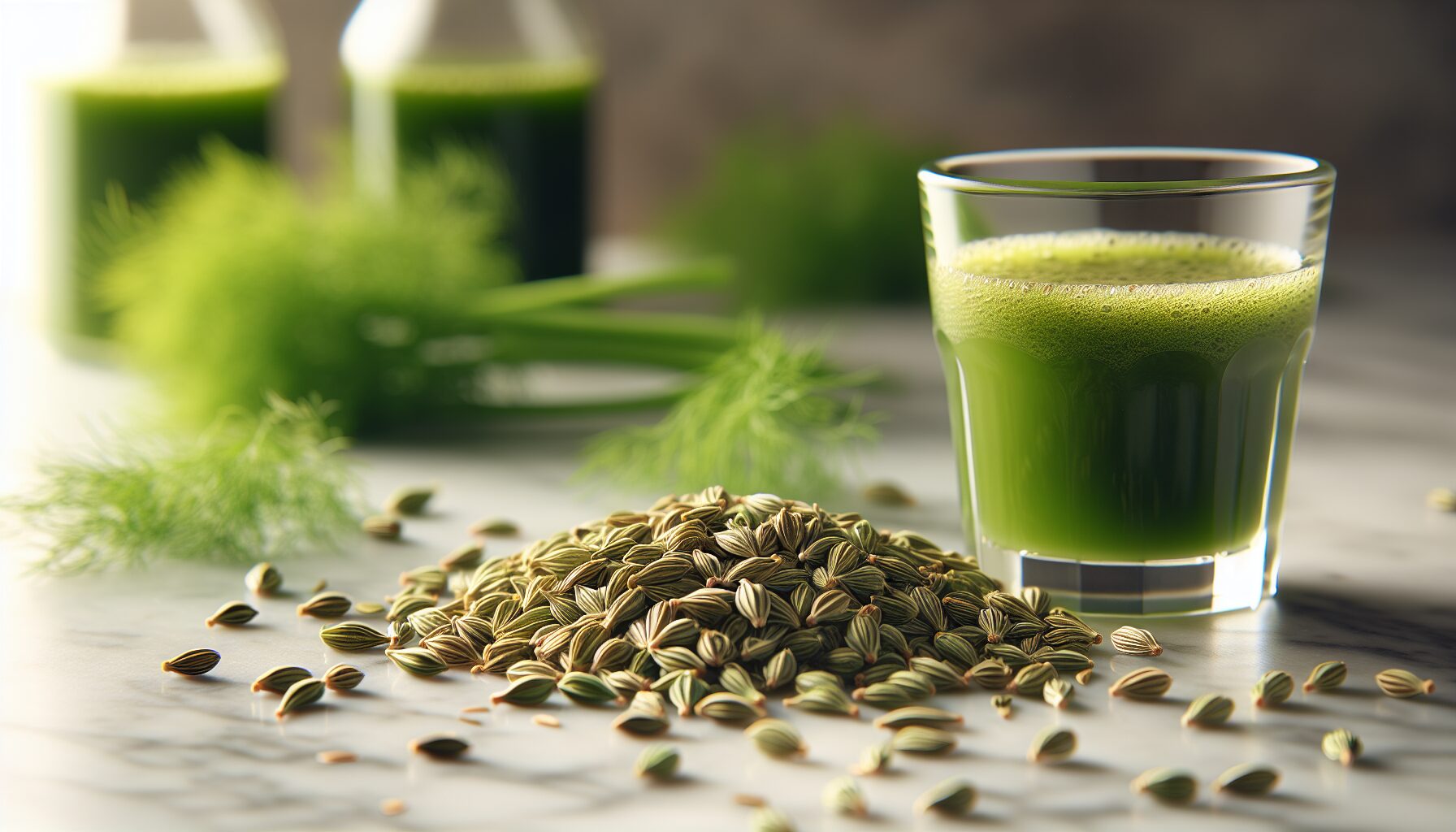
Phosphorus
Phosphorus is a bit like calcium, in that it is really essential for many processes in the body. It is one of the most important minerals in our diet. In 100 grams of fennel seeds there is 487mg of phosphorus, with our daily requirement being 700mg RDA for phosphorus. Fennel seeds do contribute in part to our RDA in the right amounts. The mineral phosphorus is essential to DNA formation and supports healthy bone formation too.
Zinc
Zinc is a nutrient that can support optimal fertility, while also providing antioxidant support to the body. Deficiencies in zinc are linked to reduced testosterone levels, which is how zinc influences muscle formation and fertility. Its antioxidant protection could also be important for optimal fertility. Fennel seeds are thought to support the fertility of women more than men, mainly because of phytoestrogens.
100 grams of fennel seeds contains around 4 grams of zinc, which is really significant for a small herb like fennel. Again, you may not want to consume 100 grams of fennel as this is excessive but fennel can contribute to the overall nutrient density of your meals. Our RDA of zinc is around 10 grams a day.
Manganese
Manganese is an essential cofactor needed in many important enzymes linked to optimal growth and antioxidant ability throughout the body. It is a really important mineral that supports healthy metabolic processes. Manganese deficiencies restrict bone formation, glucose tolerance and growth.
Manganese is not easy to obtain from our diet. Fennel seeds offer us micronational support in the form of elevated levels of manganese. Fennel can significantly contribute to our RDA in just a handful. 100 grams of fennel seeds contains around 6.5mg of manganese, while our manganese RDA is 2mg a day.
Copper
Copper is not as difficult to find as manganese in our diets and is found in high amounts in nuts. Fennel seeds also offer a good source of copper, providing 1mg of copper per 100 grams of fennel. Our RDA for copper is between 1.3mg and 1.6mg.
Copper forms key enzymes of your mitochondria. It is also needed to form red blood cells. This means that a copper deficiency can lead to red blood cell deficient anaemia and excessive tiredness. Copper can assist with improved nerve signals between nerve cells.
Iron
The iron content in fennel seeds is very high. Fennel seeds contain around 19mg of iron in 100 grams, which would cover your daily RDA. Iron is a lot like copper in that it supports the production of red blood cells, providing a vital component of their oxygen carrying capacity.
Without sufficient iron you will experience fatigue and this could lead to anaemia. Because of this, iron is also thought to contribute to health brain and muscular functioning.
Niacin
In 100 grams of fennel seeds there is 6mg of niacin, which is around half of your niacin RDA. This B vitamin is really important for energy production within the body and supports more optimal mitochondrial health. Vitamin B3 or niacin supports more optimal growth and DNA repair.
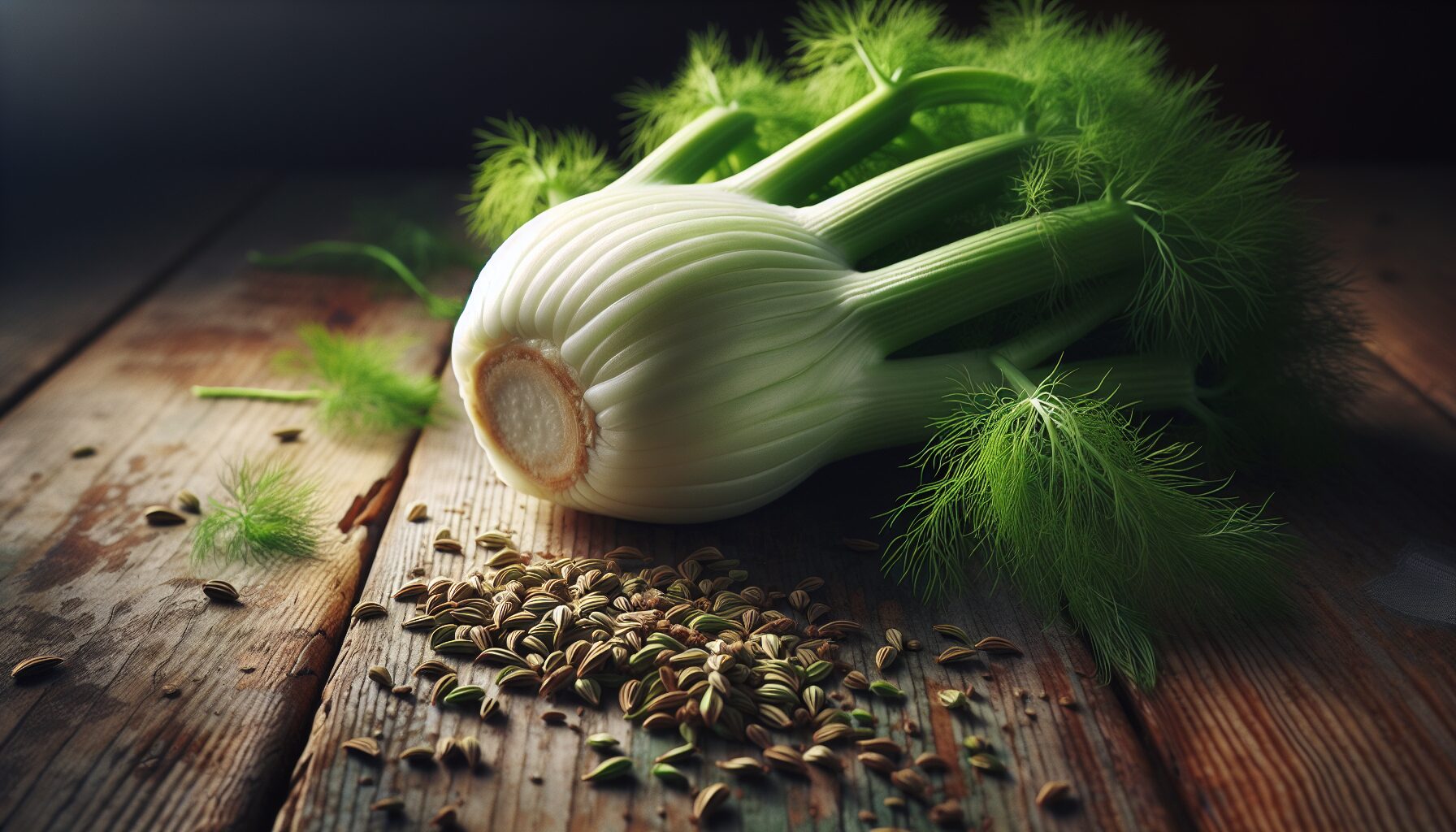
Vitamin A And Vitamin K
Found in abundance in fennel bulb are vitamins A and K. These are both fat soluble vitamins with important roles in the body.
Vitamin A is required mainly for optimal eyesight, while it is required for our colour and low light vision. This vitamin also supports optimal fertility in men and women. Vitamin K is needed for optimal healing of wounds, while it can improve vascular and muscular health.
There is 963 IU or about 300µg of vitamin A per 100 grams of fennel bulb. Our RDA for vitamin A is between 700µg and 900µg, including vitamin A activity equivalents per day. The vitamin K content of fennel bulbs is 63µg per 100 grams, while our RDA is between 90 µg and 120µg. A good serving of fennel bulb contributes significantly to our RDA for both vitamins A and K.
Fennel Seed Amino Acids
Fennel seeds are not really known for their amino acid content and fennel bulb even more so. The glutamic acid content of fennel seeds is 3 grams per 100 grams.
Glutamic acid may improve brain functioning, considering that it is an important brain neurotransmitter, helping signals to be sent across the brain. The aspartic acid content of fennel seeds is also high, at nearly 2 grams per 100 grams. This amino acid may also support improved brain health, encouraging DNA and neurotransmitter production.
Another important amino acid in fennel seeds is glycine, which is used to make glutathione and nucleic acids. It is thought to contribute to optimal neurological function, metabolic regulation and enhance wound healing. Fennel seeds contain about 1 gram of glycine per 100 grams.
Other than this, the amino acid profile of fennel seeds is not interesting and fennel seeds contain about 16 grams of protein per 100 grams.
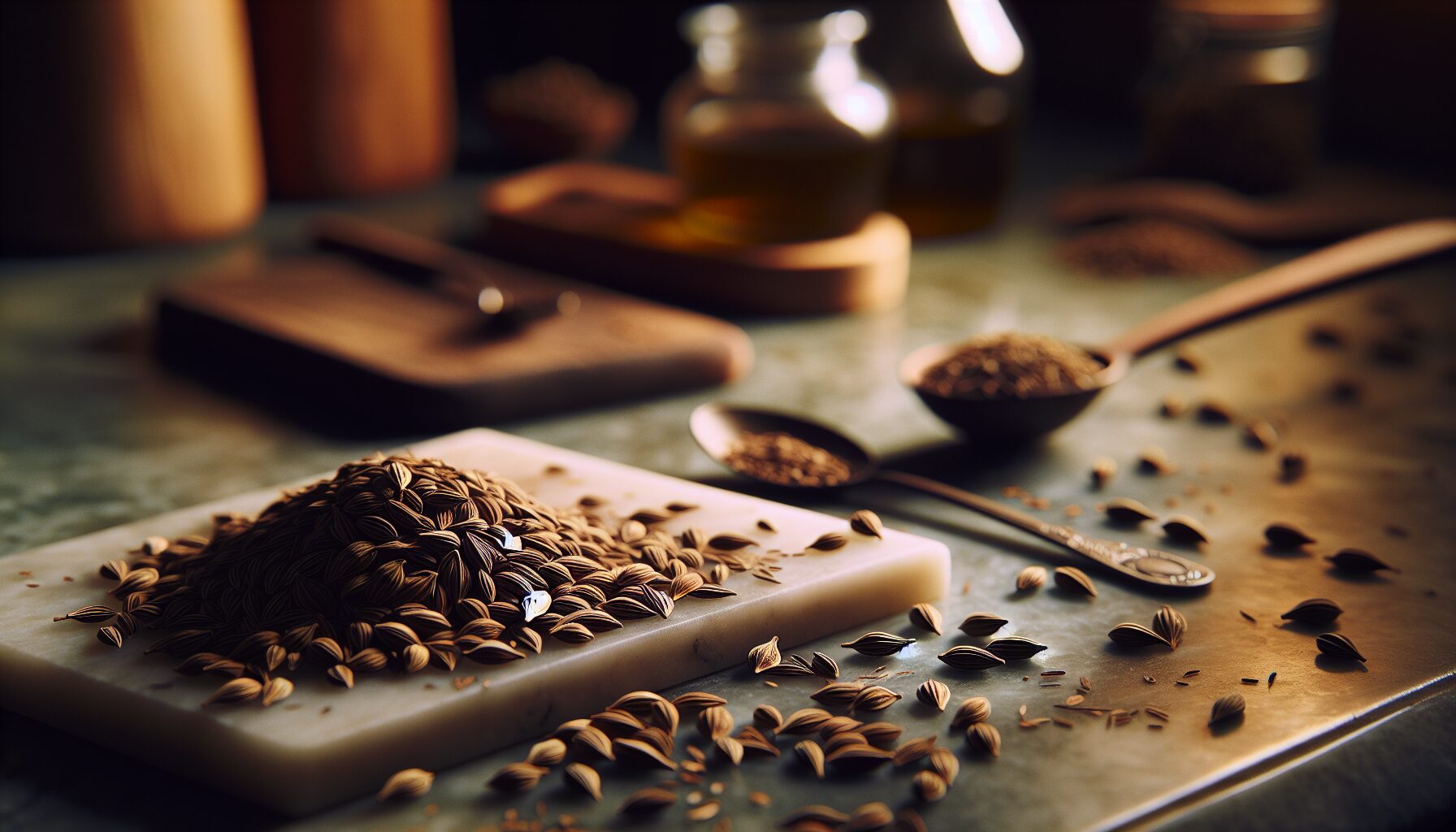
Fennel Specific Bioactive Compounds
Fennel contains phenolic compounds, flavonoids and glycosides that contribute to its traditional use as a herbal remedy for various ailments or diseases. Some example bioactive compounds include trans-anethole, fenchone, and quercetin.
Antioxidant Ability
Many of the bioactive compounds in fennel are antioxidants which contributes to a lessened risk of developing some diseases. Studies have found fennel seed extract antioxidants to have a strong antioxidant capacity comparable to vitamin A.
Antioxidants can reduce oxidative stress in the body from free radicals, which reduces risks of diseases like cancer and cardiovascular diseases. They can also assist with muscle recovery from exercise. Strong antioxidant compounds, such as the bioactive compounds of fennel seeds can reduce kidney stone build up. Fennel extracts have been shown to reduce body inflammation and supported HDL levels.
Antimicrobial Activity
Fennel compounds such as, 5-hydroxy-furanocoumarin, assist with antibacterial activity against E.coli, S.aureus, Pseudomonas aeruginosa and Salmonella typhi. Fennel seeds are really well known for the antimicrobial activity, inhibiting the growth of many pathogenic bacteria. In addition, fennel seed extracts have strong antifungal properties against different fungi including Candida albicans. Anethole is one fennel compound with very strong antifungal effects.
Anti-Anxiety Effects
Fennel contains estrogen like compounds and is sometimes used to support people suffering from estrogen insufficiency. Because of estrogen like activity in the body, fennel seed extracts are thought to contribute to a calming or anti-anxiety effect.
The antioxidants within fennel seeds are also thought to contribute to healthy memory formation and calming or anti-anxiety effects throughout the body. For example, fennel seed compounds are thought to produce anti-oxidative stress effects in the liver, which supports overall oxidative calmness throughout the body.
Estrogen like compounds can also effect libido, with anethole being a key estrogen like compound found within fennel seeds. Anethole is also a blood vessel relaxant. Fennel does have mild anaesthetic qualities as well, contributing to its calming effect.
Overall, fennel contains some interesting nutrients and fennel specific compounds that contribute to potential health benefits such as anti-inflammatory actions, which could reduce the incidence of certain diseases.
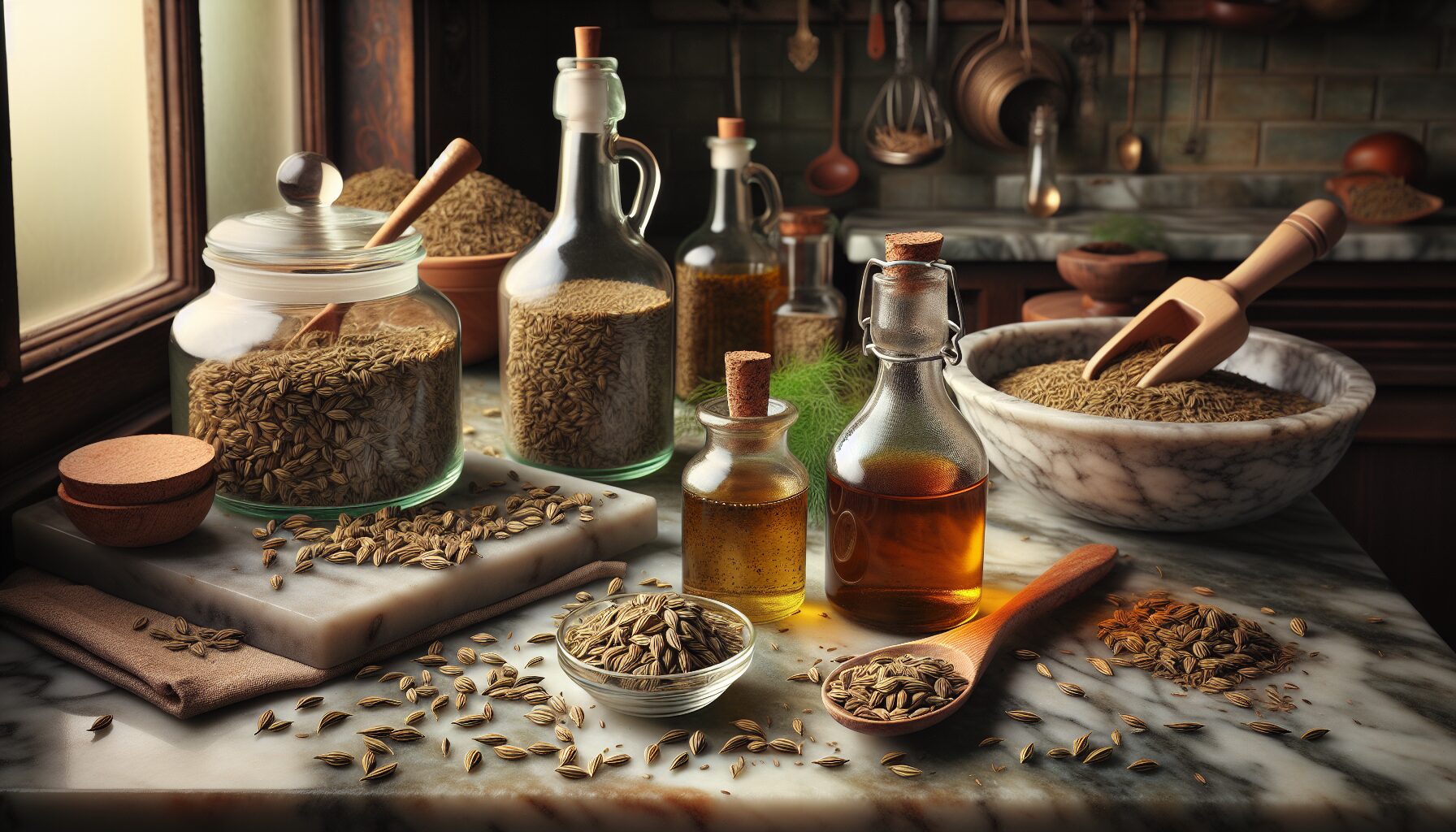
Summary
Fennel is a very popular herb that has recognised potential as a medicinal remedy. It is one of the world’s oldest spice plants. Fennel is aromatic and hardy, offering a unique spectrum of nutrients. While seeds are typically more nutrient rich than the fennel bulbs.
Some of the more recognised benefits of fennel within the body are anti-microbe, antioxidant and anti-inflammatory effects.
Loose fennel bulbs are only really rich in vitamin A, dietary fibre, vitamin K and potassium. They are very low in trace minerals. Most of the health benefits of fennel come from their seeds. The dietary fibre content of the seeds is high. This helps to encourage gut microbes and supports a healthy relationship with our gut. Inflammatory diets can cause our gut microbes a lot of trouble and foods like fennel are thought to support more optimal gut health.
Fennel seeds are rich in many essential minerals that the body needs. Minerals such as calcium, potassium and magnesium are all very important for muscle movement and brain function. Feeds seeds also supply a significant amount of manganese iron and copper. These support healthy growth and blood cell formation. Fennel bulbs contain vitamin A and vitamin K. These nutrients support optimal eye health and promote healthy wound healing.
Fennel contains specific bioactive compounds that are important for their health effects. For example, anethole has antimicrobial and anti-anxiety effects. There are many compounds within fennel that support oxidative calmness throughout the body and lower the risk of inflammatory diseases.
Consuming a small amount of fennel seeds or fennel may therefore really support our health, providing nutritional health benefits and support against certain diseases.
For more interesting articles, see the main articles page below.





